Why Kids Need to Get Uncomfortable
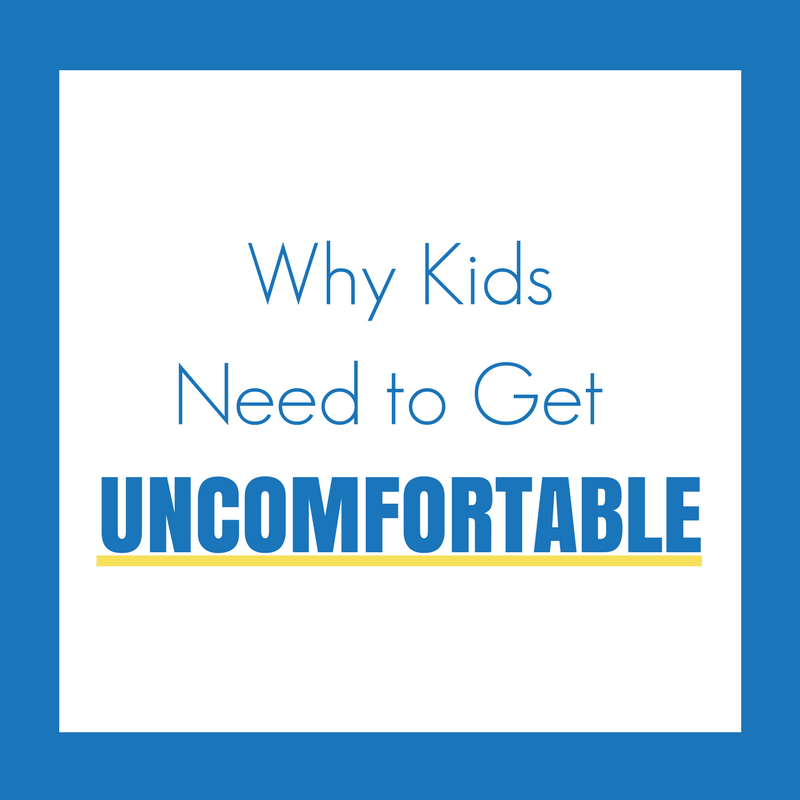
As parents, we spend a lot of time making our kids comfortable. Feeling cold? I’ll grab you a sweatshirt. Hungry? Let me get you a snack right away! Kid being unkind? I’ll complain to the teacher and make her stop!
At times, I’ve felt like it’s my duty to alleviate any discomfort my child is feeling. I think a lot of parents feel this way during this unique era of “overparenting.” One friend described the “lawn mower” parent who grooms the path for their child to make it smooth and without any bumps.
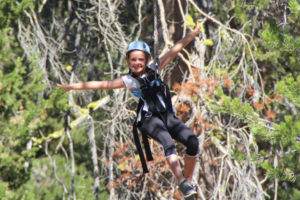 Over the past week at camp, I’ve been counseling a long-time camper who has never felt very comfortable at camp. The adventurous, outdoors activities mostly scare her. She prefers arts and crafts over rock climbing. Mosquitos are especially attracted to her, so on an overnight trip where other kids got no bites, she returned covered, despite using repellant. During much of her time at camp, she feels uncomfortable. Camp as a whole is something that’s outside of her comfort zone.
Over the past week at camp, I’ve been counseling a long-time camper who has never felt very comfortable at camp. The adventurous, outdoors activities mostly scare her. She prefers arts and crafts over rock climbing. Mosquitos are especially attracted to her, so on an overnight trip where other kids got no bites, she returned covered, despite using repellant. During much of her time at camp, she feels uncomfortable. Camp as a whole is something that’s outside of her comfort zone.
Why, you might wonder, do her parents continue to send her back to camp each summer when she’s decidedly not what one would call a “campy” kid?
It’s because they know that her comfort zone, which includes her comfy bedroom and the living room couch, needs to be expanded. She’s a young teen who, unfortunately, hasn’t yet found a sport or extracurricular interest that has grabbed her attention. So, if she were not at camp right now, she would be home doing a whole lot of nothing.
Our theme this summer at camp is “growing grit,” and Christine Carter came to train our staff on the topic. She talked about grit in a way I hadn’t thought of before. Carter said that during the short time kids are at camp, the best way we can help them grow grit is to teach them to tolerate discomfort.
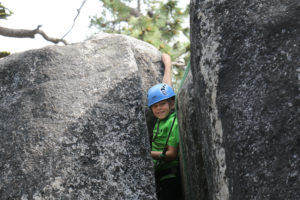 Some of us by nature are more “gritty” than others, able to push ourselves and deal with discomfort. Think about endurance runners who stumble across the finish line, bloody and exhausted. Others of us are more prone to climbing deeper into our turtle shell when faced with life’s inevitable discomforts and challenges. We tend to hunker safely inside our comfort zone and not let anyone or anything pull us out.
Some of us by nature are more “gritty” than others, able to push ourselves and deal with discomfort. Think about endurance runners who stumble across the finish line, bloody and exhausted. Others of us are more prone to climbing deeper into our turtle shell when faced with life’s inevitable discomforts and challenges. We tend to hunker safely inside our comfort zone and not let anyone or anything pull us out.
No matter where our kid’s (or our own) starting point may be, it’s important to explore the concept of being uncomfortable and, as parents, learn to tolerate that discomfort when our kids are feeling anxious, nervous, or afraid.
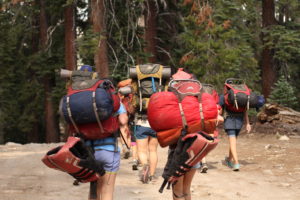 It’s not easy. Our natural instinct is to protect our kids from any and all discomfort. And when they’re little, that natural instinct serves us (and them) well. We change dirty diapers, feed them when they’re hungry, grab them before they run into the street.
It’s not easy. Our natural instinct is to protect our kids from any and all discomfort. And when they’re little, that natural instinct serves us (and them) well. We change dirty diapers, feed them when they’re hungry, grab them before they run into the street.
Unfortunately, we can’t just “turn off” our instinct, and it can lead us astray as our kids get older. When a 14-year-old decides not to bring a sweatshirt to school on a cold day, he will learn from his discomfort. If we swoop in to “save” him from the discomfort of cold, that 14-year-old will not learn to appropriately dress himself.
Emotional discomfort is even harder to handle as a parent. When a kid makes a mean comment to our child and hurts his or her feelings, we bristle. We want to alleviate the discomfort immediately, so we call the school, the other kid’s parents, and the FBI to come in and stop that horrid child from making our beloved feel uncomfortable.
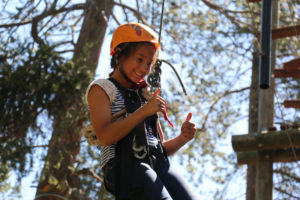 We regularly witness varying levels of discomfort at camp. While their child is away, some parents receive a sad, homesick letter detailing how uncomfortable, miserable, and sad their camper is feeling. It’s difficult for parents to know how to respond, and the natural instinct may be to jump in the car and rush up the mountain to save their camper. But, as I’ve learned over my three decades at camp, the “saving” never turns out to be as helpful as it may seem. In fact, when struggling campers are saved rather than having to face the challenges of camp, they learn their parents don’t think they can handle discomfort, and in turn they lose a little faith in themselves; on top of being miserable, they now feel incompetent.
We regularly witness varying levels of discomfort at camp. While their child is away, some parents receive a sad, homesick letter detailing how uncomfortable, miserable, and sad their camper is feeling. It’s difficult for parents to know how to respond, and the natural instinct may be to jump in the car and rush up the mountain to save their camper. But, as I’ve learned over my three decades at camp, the “saving” never turns out to be as helpful as it may seem. In fact, when struggling campers are saved rather than having to face the challenges of camp, they learn their parents don’t think they can handle discomfort, and in turn they lose a little faith in themselves; on top of being miserable, they now feel incompetent.
How can we best help our kids develop into adults who persevere and can handle life’s inevitable setbacks?
We must learn to coach our children to tolerate their discomfort. If we help them figure out coping strategies, they will be better able to respond the next time an uncomfortable or painful situation arises. For our kids to develop their grit and learn to expand their comfort zone, we need to be supportive, engaged, and empathetic, without immediately swooping in to ease their discomfort.
As Carter explained to our staff, even as camp counselors, it’s not our job to always make campers feel comfortable. Instead, a big way we can help our kids grow grit while at camp is by helping them learn to better tolerate their discomfort.
With my out-of-her-comfort-zone camper, I talked about how just being at camp is a victory. She’s stretching outside her comfort zone by sleeping in a sleeping bag, battling bugs, and hiking around camp a few miles a day.
For other campers with higher thresholds for discomfort, pushing themselves to try a new activity or climb a little higher on the ropes course may be what it takes to get them outside their comfort zone.
Regardless of how big or small our kid’s comfort zone is to begin with, our role as a camp counselor or a parent should be to gently expand each child’s zone and be there to support them as they face the inevitable discomfort; encouraging children to move beyond their circles of familiarity and constant care is important to helping them grow into the competent, independent, and gritty adults we want them to become.
There are about a billion different ways you could have spent the last five minutes, and you spent them reading my post. Thank you! If you like Sunshine Parenting, please subscribe to get an email update each time I post (use box in right column). Follow me on Facebook, Pinterest, or Twitter for links to articles and ideas about camp and parenting. Have a happy day!
